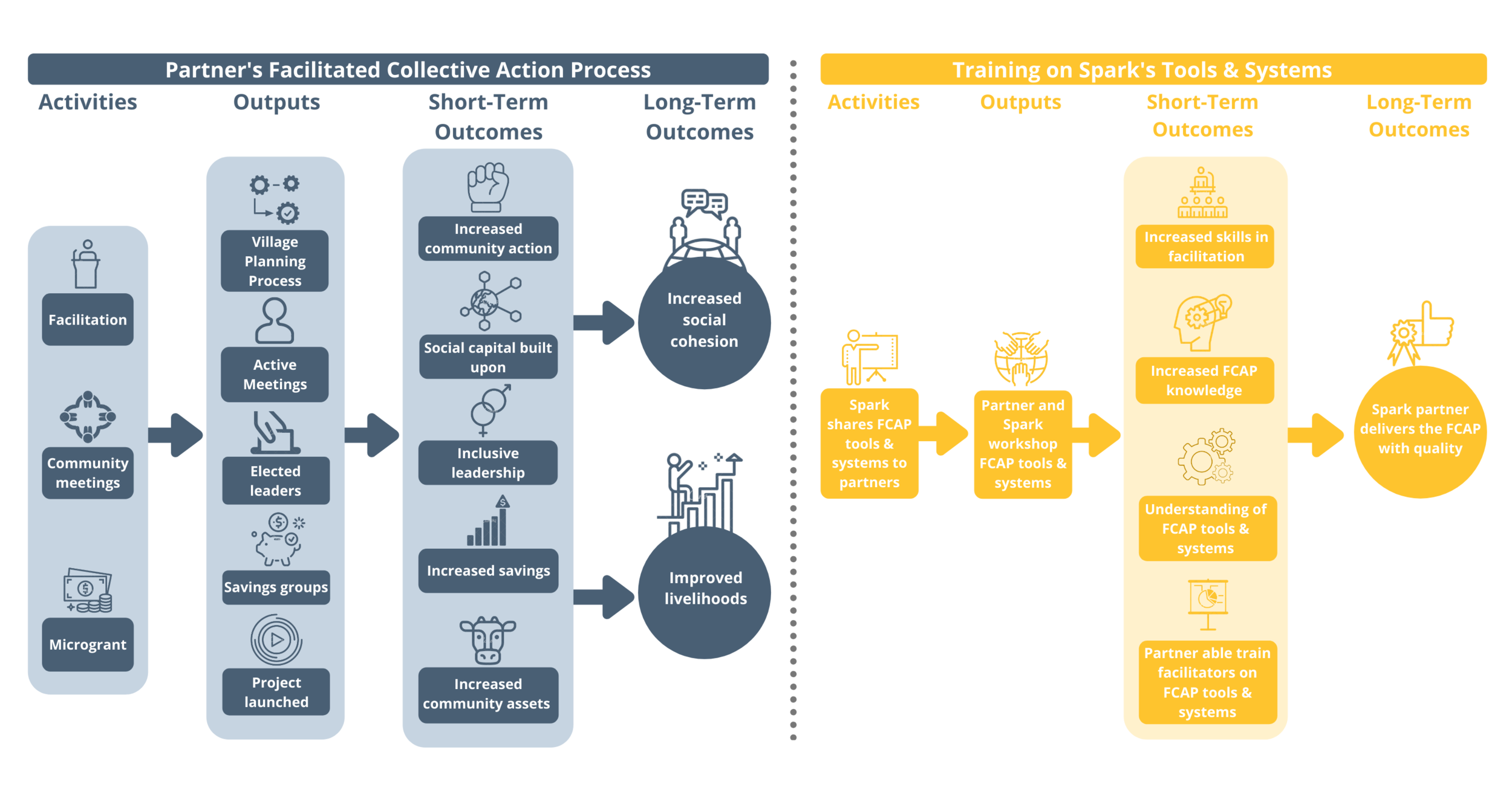Spark’s Theory of Change is rooted in driving local impact with inclusive participation, resulting in strong communities taking ownership over their own social, political, and economic futures. This is achieved by training partner organizations on Spark’s unique village planning process, the Facilitated Collective Action Process (FCAP), so they can implement this community-driven development model. Through this process, Spark works directly with partner organizations to provide trainings, tools, and systems so that they fully understand the process and are able to facilitate local change consistently, with quality, and eventually independently.
The FCAP combines facilitated meetings, community capacity building, savings groups and a microgrant to the community, in order to impact individual livelihoods and a sense of social cohesion within the whole communities. Communities elect their own leaders, launch a microgrant funded project, form savings groups, and actively participate in village meetings. All of this leads into the establishment of an annual village planning process. This village planning process increases civic action, builds upon existing social capital, increases access to income and assets, and encourages inclusive participation and leadership. All of which combine in the long term to increase social cohesion and improve livelihoods.
The key aspect of the FCAP process in the Theory of Change is around its core sustainability. Sustainability of this process lies in the agency of communities to change systems both within the communities and the organizations Spark partners with. Communities are able to utilize their increased cohesion and livelihoods to advocate for themselves and launch independent projects generating greater cohesion and livelihoods.
The process is mutually reinforcing, while Spark’s partners continue replicating the FCAP, catalyzing global growth and systems change towards community-driven development strategies.
Witaka Richard from Sironko Village, Uganda explains;
“The people were working alone but now they are working as a group. Spark has led them to start a savings culture. Some members in the different groups have started small businesses from the loans received. In some families domestic violence has been reduced. Previously we had registered over ninety-nine cases before Spark. We have not yet registered any case after Spark came here. There is a better relationship between the communities and the local government.”


